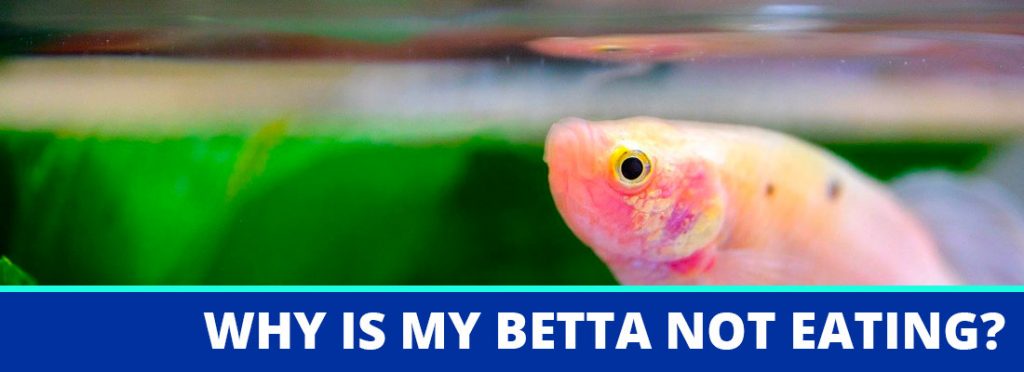Why Is My Betta Fish Not Eating: A Comprehensive Guide.

Introduction
Betta fish, also known as Siamese fighting fish, are beautiful and vibrant aquatic creatures that make popular pets. Their colorful fins and energetic behavior often captivate fish enthusiasts. However, it can be concerning when your betta fish refuses to eat. In this article, we will explore the various reasons why your betta fish may not be eating and provide actionable solutions to help address this issue. So, if you’re wondering, “Why is my betta fish not eating?” keep reading to find out!
Table of Contents
- Understanding Betta Fish Feeding Behavior
- Possible Reasons Why Your Betta Fish Is Not Eating
- How to Encourage Your Betta Fish to Eat
- Frequently Asked Questions
- Q: Can stress cause my betta fish to stop eating?
- Q: How can I tell if my betta fish is sick?
- Q: What should I do if my betta fish is not eating?
- Q: Can poor water quality affect my betta fish’s appetite?
- Q: What are the common dietary preferences of betta fish?
- Q: How often should I feed my betta fish?
- Conclusion
Understanding Betta Fish Feeding Behavior
Before delving into the reasons behind a betta fish not eating, it’s essential to understand their natural feeding behavior. In their natural habitat, bettas are carnivorous and primarily consume insects and small aquatic organisms. my betta fish They have upturned mouths, allowing them to eat food from the water’s surface.
In captivity, betta fish are commonly fed commercial betta pellets or flakes, which are formulated to meet their nutritional needs. However, despite their robust appetite, bettas can occasionally exhibit a lack of interest in food. This behavior is often a sign of an underlying issue that requires attention.
Possible Reasons Why Your Betta Fish Is Not Eating
Stress or Environmental Factors
Stress is a common cause of decreased appetite in betta fish.my betta fish These sensitive creatures can experience stress due to various environmental factors, such as improper tank setup, aggressive tank mates, loud noises, or frequent disturbances. Stress can manifest in decreased appetite and lethargy.
To mitigate stress, ensure that your betta fish is housed in a suitable environment. Provide ample hiding places, maintain appropriate water temperature (around 78-80°F or 25-27°C), and minimize external disturbances.
Illness or Disease
Illness or disease can significantly impact a betta fish’s appetite. Some common ailments that may affect their feeding behavior include bacterial or fungal infections, parasites, swim bladder disorder, or internal organ issues. my betta fish If your betta fish exhibits additional symptoms like lethargy, fin rot, discoloration, or clamped fins, it may indicate an underlying health problem.
Water Quality Issues
Betta fish are highly susceptible to water quality issues, and poor water conditions can lead to appetite loss. Factors like high levels of ammonia, nitrites, or nitrates, improper pH levels, or inadequate filtration can stress the fish and affect their appetite.
Maintaining optimal water quality is crucial for your betta fish’s overall well-being. Regularly test the water parameters, perform water changes as needed, and use a reliable water conditioner to remove harmful substances.
Feeding Preferences and Dietary Changes
Betta fish, like any other pet, can have specific feeding preferences. They may refuse to eat certain types of food or become accustomed to a particular brand. Introducing a new type of food abruptly or switching brands without proper acclimation can lead to appetite loss.
Ensure that you provide a balanced diet consisting of high-quality betta pellets, freeze-dried or frozen foods like bloodworms or brine shrimp, and occasional treats like daphnia. If you plan to introduce a new food, do so gradually, mixing it with the existing food to encourage acceptance.
Inappropriate Feeding Schedule
Establishing a consistent feeding schedule is crucial for betta fish. Irregular or erratic feeding times can confuse the fish and disrupt their feeding behavior. It’s recommended to feed your betta fish two to three small meals a day, ensuring they can consume the food within a few minutes.
Overfeeding
Overfeeding is a common mistake that can negatively impact a betta fish’s health and appetite. Betta fish have small stomachs and can quickly become bloated if they consume excessive amounts of food. Over time, this can lead to swim bladder issues, decreased appetite, and even digestive problems.
Feed your betta fish appropriate portion sizes that they can consume within a few minutes. Monitor their body condition and adjust the feeding amount accordingly.
How to Encourage Your Betta Fish to Eat
Addressing the underlying cause and encouraging your betta fish to eat requires a multi-faceted approach.my betta fish Here are some effective strategies to help stimulate their appetite:
Creating a Stress-Free Environment
Ensure that the tank setup is suitable for your betta fish’s needs. Include plants, caves, or other hiding spots to provide a sense of security. Keep the tank away from excessive noise and disturbances to minimize stress.
Addressing Health Concerns
If you suspect that your betta fish is unwell, consider consulting a veterinarian experienced in aquatic animal care. my betta fish They can diagnose any underlying health issues and prescribe appropriate treatments. Follow the veterinarian’s instructions diligently to restore your fish’s health and appetite.
Maintaining Optimal Water Quality
Regularly test the water parameters and maintain optimal conditions for your betta fish. Keep the ammonia, nitrite, and nitrate levels in check, and ensure the pH level is suitable for betta fish (around 7.0). my betta fish Clean the tank regularly and perform water changes as needed.
Offering a Varied Diet
Provide a varied diet to cater to your betta fish’s nutritional needs and preferences. Offer a combination of high-quality betta pellets, freeze-dried or frozen foods, and live food options like brine shrimp or daphnia. This variety can entice them to eat and provide essential nutrients.
Establishing a Proper Feeding Schedule
Maintain a consistent feeding schedule to establish a routine for your betta fish. Feed them two to three small meals a day at regular intervals. Stick to appropriate portion sizes to prevent overfeeding.
Avoiding Overfeeding
Be cautious not to overfeed your betta fish. Feed them an amount they can consume within a few minutes, and monitor their body condition closely.my betta fish Adjust the feeding amount as needed to prevent bloating and related health issues.
Frequently Asked Questions
Q: Can stress cause my betta fish to stop eating?
Yes, stress can affect a betta fish’s appetite. Environmental factors like improper tank setup, aggressive tank mates, or frequent disturbances can induce stress and lead to decreased appetite. A Comprehensive Guide Ensuring a stress-free environment is essential to encourage healthy feeding behavior.

Q: How can I tell if my betta fish is sick?
Signs of illness in betta fish may include lethargy, fin rot, discoloration, clamped fins, loss of appetite, or abnormal behavior. If you notice any of these symptoms, it’s recommended to consult a veterinarian specializing in aquatic animals for a proper diagnosis and treatment plan.
Q: What should I do if my betta fish is not eating?
If your betta fish is not eating, assess the possible causes such as stress, illness, water quality, feeding preferences, inappropriate feeding schedule, or overfeeding. Take appropriate steps to address the underlying issue, such as creating a stress-free environment, addressing health concerns, maintaining optimal water quality, offering a varied diet, establishing a proper feeding schedule, and avoiding overfeeding.
Q: Can poor water quality affect my betta fish’s appetite?
Yes, poor water quality can significantly impact a betta fish’s appetite. High levels of ammonia, nitrites, nitrates, or improper pH levels can stress the fish and lead to decreased appetite. It’s crucial to maintain optimal water conditions through regular testing, water changes, and the use of water conditioners.
Q: What are the common dietary preferences of betta fish?
Betta fish are carnivorous and typically prefer a diet consisting of high-quality betta pellets, freeze-dried or frozen foods like bloodworms or brine shrimp, my betta fish and occasional treats like daphnia. Offering a variety of food options can cater to their nutritional needs and stimulate their appetite.
Q: How often should I feed my betta fish?
It’s recommended to feed betta fish two to three small meals a day. Ensure that the food is consumed within a few minutes to prevent overfeeding. Establishing a consistent feeding schedule helps maintain a healthy routine for your betta fish.
Conclusion
When your betta fish refuses to eat, it can be concerning. my betta fish By understanding the possible reasons behind their decreased appetite and implementing appropriate solutions, you can help restore their feeding behavior and overall well-being. Addressing stress, maintaining optimal water quality, offering a varied diet, establishing a feeding schedule, and avoiding overfeeding are key steps in encouraging your betta fish to eat. Remember to monitor their health closely and consult a veterinarian if necessary. my betta fish With proper care and attention, you can ensure a happy and healthy betta fish in your aquarium.






